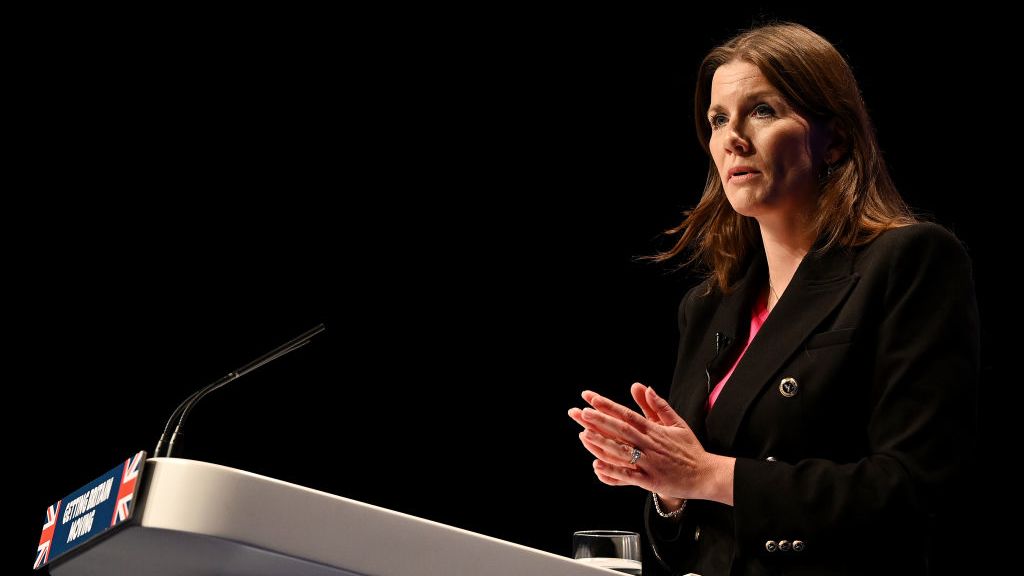MPs call for social media tax to fund mental health research
Fresh regulations, including a statutory code of conduct, are proposed to tame the “lawless landscape”


Sign up today and you will receive a free copy of our Future Focus 2025 report - the leading guidance on AI, cybersecurity and other IT challenges as per 700+ senior executives
You are now subscribed
Your newsletter sign-up was successful
A cross-party group of MPs has demanded the government introduces a tax on social media platforms that will then fund an organisation to research links between online activity and deteriorating children's mental health.
Social media firms must also abide by a statutory code of conduct, the MPs proposed, which would serve as a duty of care for under-24-year-olds. The code of conduct, which would be enforced by UK communications regulator Ofcom, would apply to all social media sites, regardless of the platform's size or however long they have existed.
These recommendations were set out in the first report produced by the all-party parliamentary group (APPG) and co-written with the Royal Society for Public Health (RSPH), with it focussed around social media and its impact on young people's mental health and wellbeing.
In it, the group of MPs have called for the formation of a Social Media Alliance to fund further research and draw up clear guidelines as well as educational tools for the general public. This new organisation would be funded by a 0.5% levy on the profits of social media companies.
The report also highlighted the government should also commission urgent research into whether there is any correlation or causation between the sharp rise in social media usage and the decline in mental health among young people.
The 'addictive' nature of social media, meanwhile, should also be examined extensively so authorities can decide whether or not this phenomenon is concrete enough to gain officially disease classification.
"I truly think our report is the wakeup call needed to ensure - finally - that meaningful action is taken to lessen the negative impact social media is having on young people's mental health," said chair of the APPG Chris Elmore MP.
Sign up today and you will receive a free copy of our Future Focus 2025 report - the leading guidance on AI, cybersecurity and other IT challenges as per 700+ senior executives
"For far too long social media companies have been allowed to operate in an online Wild West. And it is in this lawless landscape that our children currently work and play online. This cannot continue. As the report makes clear, now is the time for the government to take action."
The APPG's recommendations have come just days before the government is set to announce its own policies on governing tech companies in the form of an online harms white paper. These will be the first regulations of this kind in the UK.
The MPs ran their inquiry from 29 July last year to 9 January 2019 and sought written evidence from experts, academics, as well as children and parents, along with industry representatives during the process to inform its report.
The demands have been added to a growing list of policy suggestions from a chorus of groups, each issuing their own recommendations as to how the state should regulate the tech industry.
The House of Lords' Communications Committee, for example, recommended that tech firms should be overseen by a newly-established Digital Authority. This organisation would supervise existing regulators, and make recommendations for further rules.
The APPG's recommendations differ slightly; in that, it recommends that Ofcom takes up the mantle for enforcing the statutory duty of care. This would comprise an ethical framework by which social media firms would be judged against, and would replace the existing regime of 'self-regulation'.
The MPs argued the government's forthcoming white paper should clearly define key harms and a code of conduct that companies can follow to ensure they protect their users. These include self-harm, disordered eating, low self-esteem, a lack of sleep, and an over-dependence on social media.
The government has said its online harms white paper will be released before the end of Winter 2019.

Keumars Afifi-Sabet is a writer and editor that specialises in public sector, cyber security, and cloud computing. He first joined ITPro as a staff writer in April 2018 and eventually became its Features Editor. Although a regular contributor to other tech sites in the past, these days you will find Keumars on LiveScience, where he runs its Technology section.
-
 Stop treating agentic AI projects like traditional software
Stop treating agentic AI projects like traditional softwareAnalysis Designing and building agents is one thing, but testing and governance is crucial to success
-
 PayPal appoints HP’s Enrique Lores in surprise CEO shake-up
PayPal appoints HP’s Enrique Lores in surprise CEO shake-upNews The veteran tech executive will lead the payments giant into its next growth phase amid mounting industry challenges
-
 Three things you need to know about the EU Data Act ahead of this week's big compliance deadline
Three things you need to know about the EU Data Act ahead of this week's big compliance deadlineNews A host of key provisions in the EU Data Act will come into effect on 12 September, and there’s a lot for businesses to unpack.
-
 UK financial services firms are scrambling to comply with DORA regulations
UK financial services firms are scrambling to comply with DORA regulationsNews Lack of prioritization and tight implementation schedules mean many aren’t compliant
-
 What the US-China chip war means for the tech industry
What the US-China chip war means for the tech industryIn-depth With China and the West at loggerheads over semiconductors, how will this conflict reshape the tech supply chain?
-
 Former TSB CIO fined £81,000 for botched IT migration
Former TSB CIO fined £81,000 for botched IT migrationNews It’s the first penalty imposed on an individual involved in the infamous migration project
-
 Microsoft, AWS face CMA probe amid competition concerns
Microsoft, AWS face CMA probe amid competition concernsNews UK businesses could face higher fees and limited options due to hyperscaler dominance of the cloud market
-
 Online Safety Bill: Why is Ofcom being thrown under the bus?
Online Safety Bill: Why is Ofcom being thrown under the bus?Opinion The UK government has handed Ofcom an impossible mission, with the thinly spread regulator being set up to fail
-
 Can regulation shape cryptocurrencies into useful business assets?
Can regulation shape cryptocurrencies into useful business assets?In-depth Although the likes of Bitcoin may never stabilise, legitimising the crypto market could, in turn, pave the way for more widespread blockchain adoption
-
 UK gov urged to ease "tremendous" and 'unfair' costs placed on mobile network operators
UK gov urged to ease "tremendous" and 'unfair' costs placed on mobile network operatorsNews Annual licence fees, Huawei removal costs, and social media network usage were all highlighted as detrimental to telco success